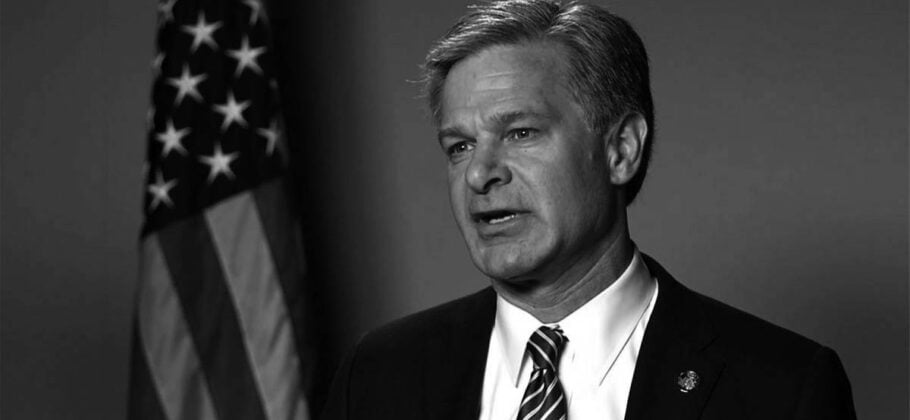In the labyrinth of global geopolitics, where traditional battlefields have extended into the vast and shadowy realm of cyberspace, a pressing alarm has been sounded by FBI Director Christopher Wray. His warning, delivered with a sense of urgency at a Munich security conference, thrusts into the spotlight a burgeoning cyber threat from China that poses unprecedented risks to the United States’ critical infrastructure. The scale and sophistication of Beijing’s digital espionage efforts, according to Wray, have reached an unparalleled level, marking a seismic shift in the landscape of national security threats.
“In fact, China-sponsored hackers pre-positioned for potential cyberattacks against US oil and natural gas companies way back in 2011,” Wray said. “But these days, it’s reached something closer to a fever pitch….If each one of the FBI’s cyber agents and intelligence analysts focused exclusively on the China threat, China’s hackers would still outnumber FBI cyber personnel by at least 50 to 1”
Wray’s revelations come at a time when the world’s attention is riveted by the tangible conflicts in Ukraine and the Middle East. Yet, amidst this focus on physical warfare, the FBI Director has urged the international community not to overlook the silent, insidious campaign being waged by China in the cyber domain. He delineates a chilling scenario where Beijing-backed hackers, through covert operations, have entrenched offensive malware within the nerve centers of U.S. critical infrastructure. This malware, Wray warns, is not just passive surveillance tooling but a pre-positioned digital weapon that can be activated on command to wreak havoc on essential services that ensure the everyday functioning of society.
The operation, known as Volt Typhoon, serves as a stark exemplar of China’s cyber capabilities. Revealed last year, this hacking network lies in wait within systems that control everything from the provision of safe drinking water to the regulation of air traffic. Wray’s assertion that “It’s the tip of the iceberg…it’s one of many such efforts by the Chinese,” underscores the vastness and depth of the threat landscape. The FBI Director’s statement that China is inserting “offensive weapons within our critical infrastructure poised to attack whenever Beijing decides the time is right,” amplifies the sense of an imminent and ever-present danger.
The gravity of Wray’s message is compounded by the acknowledgment of the FBI’s ongoing struggle to counteract these threats. Despite not divulging specifics about the other critical infrastructures targeted, Wray has made it clear that the Bureau is deeply engaged in efforts to uncover, anticipate, and neutralize these threats. This campaign against Chinese cyber espionage has seen Wray seeking to bolster international cooperation, pushing for a unified stance amongst allies in Europe and Asia to shore up defenses against what he perceives as a defining national security challenge of our time.
Wray’s efforts to galvanize a global response against the Chinese cyber threat have seen some success, with nations previously skeptical of the magnitude of the threat now taking proactive steps to protect their critical infrastructure. This international awakening to the dangers posed by Chinese hacking campaigns represents a crucial development in the global cybersecurity narrative.
Wray’s discussions with counterparts from the Five Eyes intelligence alliance and his diplomatic engagements in Malaysia and India underscore the FBI’s commitment to fostering a concerted international effort to combat Chinese cyber espionage. His warning that “China-sponsored hackers pre-positioned for potential cyberattacks against U.S. oil and natural gas companies way back in 2011, but these days, it’s reached something closer to a fever pitch,” is a testament to the escalating nature of the threat.
As the specter of Chinese cyberattacks looms large over the United States and its allies, the need for robust cybersecurity measures and international cooperation has never been more critical. Does the Biden Administration have the political will to attack this?











